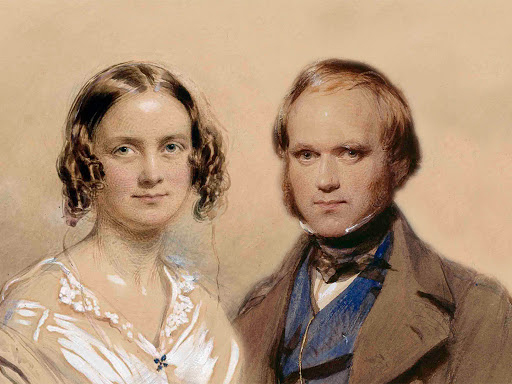Albert einstein and charles darwin both married their first cousins

Albert Einstein and Charles Darwin: A Shared Connection through Marriage


When it comes to the world of science, there are two names that undoubtedly stand out: Albert Einstein and Charles Darwin. These two renowned figures have not only revolutionized their respective fields but also share an intriguing fact – they both married their first cousins. Let’s explore this intriguing facet of their lives and uncover the reasons behind such unions.
First, let’s delve into the life of Charles Darwin, the renowned naturalist and author of “On the Origin of Species.” Darwin married his first cousin, Emma Wedgwood, on January 29, 1839. Their bond was more than just a marriage between relatives; it was a symbol of unity between two scientifically inclined families. This alliance strengthened Darwin’s connection with the Wedgwood family, who were prominent industrialists and intellectuals. Emma would later provide Darwin with invaluable support and companionship throughout his career, contributing to the success of his groundbreaking scientific research.
Moving forward into the realm of physics, we encounter the genius of Albert Einstein. Einstein, whose name is inherently associated with his theory of relativity, entered into wedlock with his first cousin, Elsa Einstein, on June 2, 1919. It is worth noting that Elsa was also Einstein’s second cousin through their shared maternal ancestry. This union took place after Einstein’s first marriage to Mileva Marić ended in divorce. While society may question his choice, it is important to understand that Einstein’s decision to marry his cousin was not uncommon during that era. His relationship with Elsa proved to be a harmonious one, allowing Einstein to focus on his scientific pursuits and further cement his place in history.
Critics of marriages between first cousins often raise concerns about the potential genetic risks involved. However, it is important to consider that during the eras when Einstein and Darwin lived, such risks were not as well understood as they are today. In fact, marriage between cousins was not considered as taboo as it is now, and many prominent families, including royalty, practiced such unions based on the customs and norms of the time.
While these unions may be seen as controversial by contemporary standards, it is crucial to analyze them in the context of the societies in which these brilliant minds lived. The historic connections and shared backgrounds forged through these cousin marriages undoubtedly played a role in furthering the scientific pursuits of both Darwin and Einstein. By marrying their first cousins, they unwittingly solidified a bond that extended beyond love and companionship, enabling them to focus on their groundbreaking work without the distractions that often accompany relationships outside of familiar circles.
This article has been written based on information from the Ancestry blog, which explores the fascinating topic of famous individuals marrying their cousins.
Share
Related Posts
Quick Links
Legal Stuff

